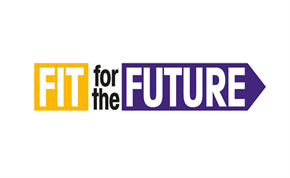
One of Fit for the Future’s central aims is making EEAST the best place to work. It is only through enabling all of you to do your very best that we can make the improvements needed to the Trust and provide even better care to our patients and communities.
In my last blog I introduced the People Strategy that we are developing for the Trust. Marika Stephenson, Executive Director for People Services, has described this as a conversation that involves all of us at EEAST in “making EEAST the Trust we all love to work for”.
This was the focus for a leadership event at the end of March when we brought together 85 of our senior managers. This is the first time I have done this at EEAST and it was really inspiring to see the level of energy and passion that our leaders brought to this virtual event.
We wanted to explore how we can make it more enjoyable for you working or volunteering at EEAST – whether that is through our People Strategy, supporting your health and wellbeing, reducing employee relations cases or supporting our managers to be better leaders.
Our People Strategy covers every area of working at EEAST from making HR processes much easier and efficient through to ensuring sure you have the training you need. We will know that we have it right when we are seen as an employer of choice, with people seeking us out as an employer; when our BME colleagues are represented at all levels in the Trust and when we are able not just to recruit but to retain and develop a higher number of people with satisfying careers, low sickness levels and a justifiable reputation as a learning organisation. We are also looking at how we can manage employee relations cases more effectively so that they are truly victim-led with people supported in speaking up.
The National NHS Staff Survey results were published on 30 March. We still have the lowest score among ambulance trusts, which is disappointing, but understandable given the challenges we face and the work we know we still have to do. However, the survey does identify some important improvements that have been made with fewer of you experiencing bullying from managers or feeling under pressure from your manager to come into work when you are unwell and a greater number of you feeling safe to report unsafe clinical practice, indicating we are creating a culture which is becoming safer. That sense of increased safety is also reflected is the fact that fewer people also experienced violence from service users.
These numbers still need to improve more but can give us confidence that we are able to make a difference.
We also looked at the results against each part of the People Promise and will be focusing on two main areas that we believe will make the biggest difference to our people:
At the Leadership Event we discussed how we will make these improvements through:
The staff survey results are being made available at directorate and sector level so that managers can involve their people in drawing up localised plans which will be monitored through the accountability forums.
Underpinning all of this is the need to proactively support people’s health and well-being. It’s easy to use terms such as these without always thinking through what we mean by this. However, Martin Short, our new Head of Health and Wellbeing, is helping us think about how health and wellbeing can fluctuate across different ages and life stages and how our colleagues with protected characteristics may be impacted so that we can make sure everyone gets the support they need .
As ever, I came away from the event really impressed by the level of commitment and enthusiasm we see across our organisation. We will harness this energy to make the improvements needed at EEAST and I believe that you will be able to feel , hear and see the difference over the coming months.
Tom Abell, CEO
Monday 9th May 2022